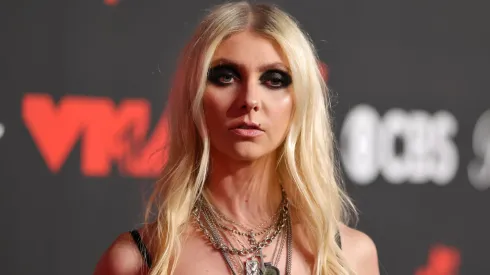Before Taylor Momsen was commanding festival stages and snarling into microphones, she was stealing scenes on screen. From her breakout as Jenny Humphrey in Gossip Girl to roles that quietly showcased her depth long before her rock persona took center stage, her early career was a study in transformation.
Behind the camera lens, she carried the same intensity that would later define her music — a mix of defiance, vulnerability and control. Though best known today as the unapologetic voice of The Pretty Reckless, her film work offers a fascinating glimpse into the artist she was becoming.
Gossip Girl (2007–2012)
As Jenny Humphrey, Taylor Momsen embodied the tension between ambition and innocence in the glittering chaos of the Upper East Side. Over six seasons, she evolved from the wide-eyed outsider to a symbol of rebellion against the world that shaped her. Jenny’s transformation mirrored Momsen’s own journey — shedding expectations, embracing darkness, and choosing authenticity over approval. It remains her defining television role, one that still pulses with the energy of youth and revolt.
How the Grinch Stole Christmas (2000)
Long before her rock persona, Momsen captured hearts as Cindy Lou Who in Ron Howard’s holiday classic. Her tender performance — sweet, sincere, and luminous — grounded the film’s eccentric energy with emotional warmth. Even at seven, she showed an intuitive sense of screen presence. It’s a role that could’ve defined her forever, yet instead became just the first note in a much wilder symphony.
Paranoid Park (2007)
In Gus Van Sant’s haunting exploration of adolescence and guilt, Momsen’s role is brief but unforgettable. Her appearance carries a quiet intensity that fits perfectly within the film’s dreamlike mood. Paranoid Park marked a transition point — an early sign that Momsen belonged to the indie world as much as the mainstream, drawn to art over artifice.
Spy Kids 2: The Island of Lost Dreams (2002)
A blink-and-you’ll-miss-it appearance for most viewers, yet a fun reminder of her early Hollywood days. In Spy Kids 2, Momsen brought youthful charm and curiosity to a universe built on imagination and chaos. It’s a snapshot of a performer testing the waters of stardom — before she’d later dive deep into a completely different kind of rebellion.
Saving Shiloh (2006)
In this heartfelt family drama, Momsen plays Samantha, a role that allowed her to balance innocence with growing emotional awareness. The film’s sincerity and rural tone contrast sharply with her later edgier work, but that’s what makes it compelling — it captures a version of Momsen that feels both distant and essential to understanding her artistic evolution.
Underdog (2007)
Lighthearted and spirited, Underdog offered Momsen a chance to showcase her comedic side. Playing Molly, she brought warmth and natural charisma to a story filled with talking animals and childhood wonder. It’s a reminder that even in formulaic settings, she managed to leave an impression — a spark that hinted at the confidence she’d later channel into her music career.
Hansel and Gretel (2002)
In this early fantasy adaptation, Momsen portrayed Gretel with a balance of innocence and quiet courage. The film, though modest in scale, is notable for how it showcased her ability to anchor a story even at a young age. There’s a rawness to her performance — a glimmer of the fearlessness that would later define her on stage.
We Were Soldiers (2002)
As Julie Moore’s daughter, Momsen appeared in one of the decade’s most emotionally charged war dramas. Her brief role carried surprising emotional weight, especially within a cast led by veterans like Mel Gibson and Madeleine Stowe. Even in fleeting moments, she added texture to the film’s human core — a testament to her early dramatic instincts.
Undiscovered (2005)
In Undiscovered, a little-seen romantic drama about fame and creative longing, Momsen’s appearance was small but thematically fitting. Surrounded by aspiring artists and dreamers, she inhabited the role with natural ease — as if foreshadowing her own path toward artistic reinvention. It’s one of those early credits that feels more symbolic in hindsight than it did at the time.
Spy School (2008)
Her final screen role before fully dedicating herself to music, Spy School closed a chapter in Momsen’s on-screen life. Though the film itself flew under the radar, it captures a performer at the crossroads — one foot in the Hollywood machine, the other already stepping toward the stage. In retrospect, it feels like a farewell to one era and the quiet prelude to another defined by guitars, grit, and defiance.
